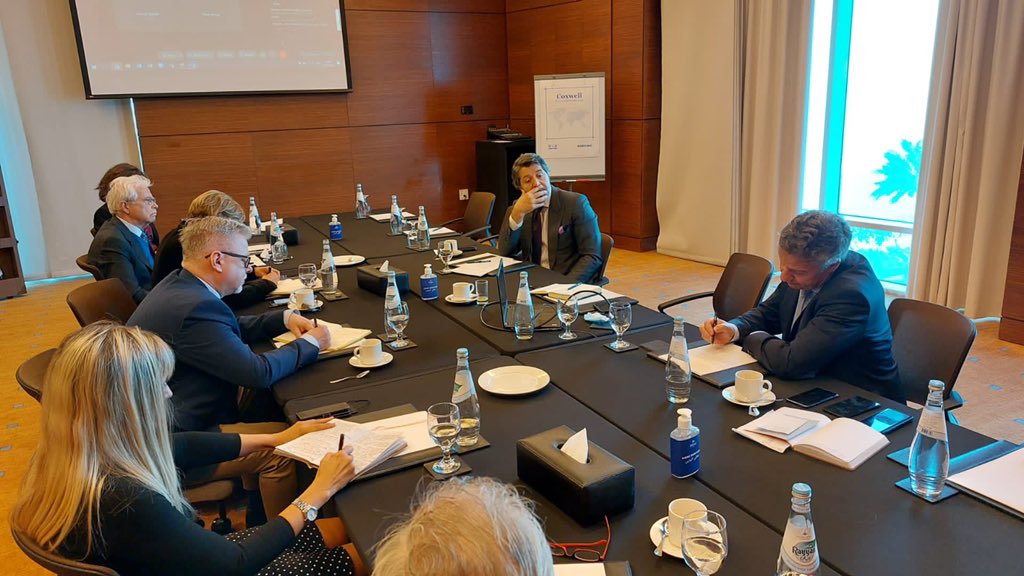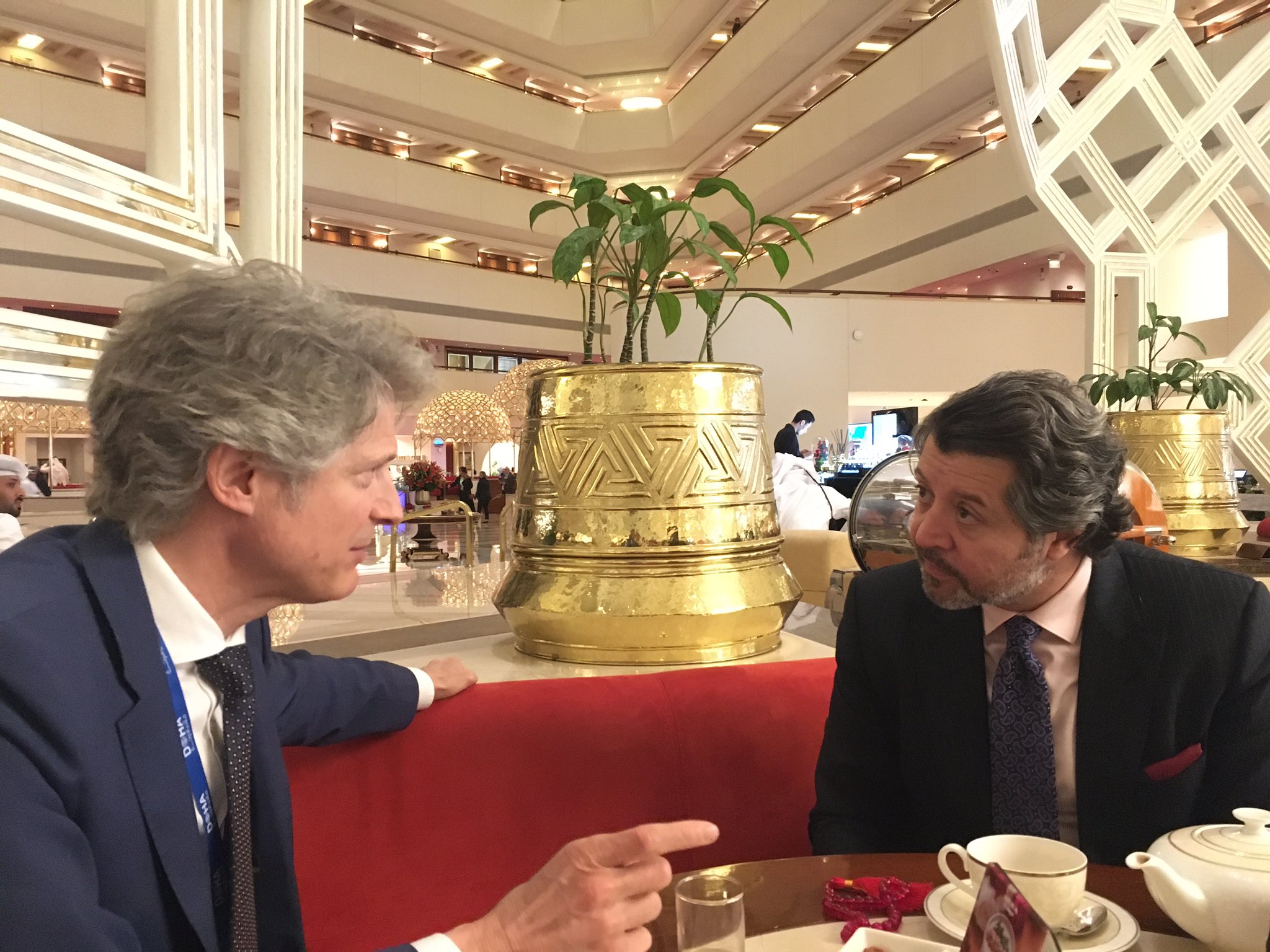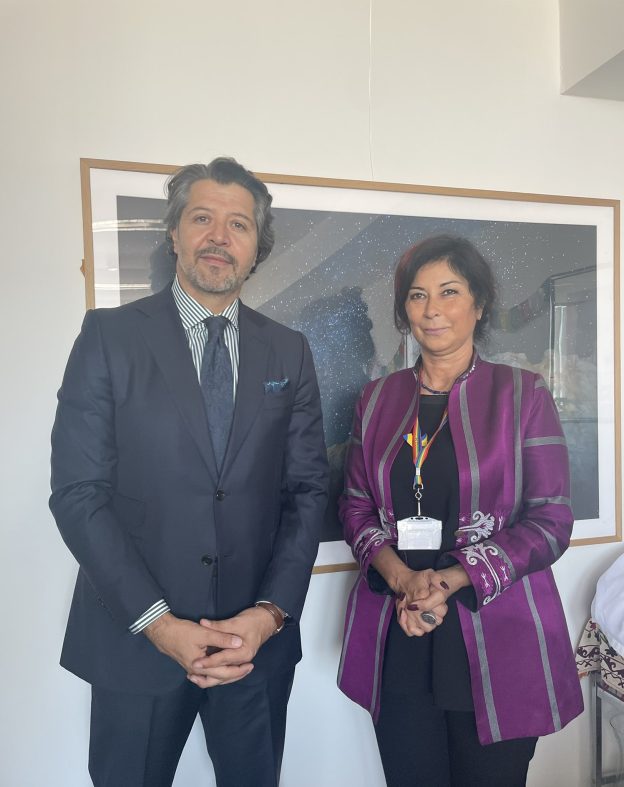Jun 11, 2011
May 22 – May 26, 2011
On the invitation of the Geneva Centre for Security Policy, Mr. Hekmat Karzai, Director of the Centre for Conflict and Peace Studies (CAPS) visited Geneva from May 22nd till May 26th. During his visit, Mr. Karzai held various discussions, gave presentations and spoke at a public discussion.
On May 24th, Mr. Karzai spoke to the participants of the 25th International Training Course in Security Policy (ITC) and on the 12th New Issues in Security Course (NISC) at the Geneva Centre for Security Policy (GCSP). The title of his presentation was, ‘Afghanistan: Perpetual Conflict and the Way Forward.’
The participants of the course were mid-career officials from Ministries of Defence & Foreign Affairs from PfP and NATO as well as Mediterranean partner countries working in the field of international security.
Mr. Karzai also spoke at a public discussion titled: “Afghanistan – Pakistan Relations, After Osama and the US Withdrawal”. The two additional speakers with Shuja Nawaz, Director of South Asia Programs at the Atlantic Council and Jasimine Zerinini, French Diplomat, who served as the Acting Special Envoy of France for Afghanistan and Pakistan.
________________________________________________________________________
Below please find the transcript of Mr. Karzai’s remarks at the Geneva Centre for Security Policy.
Transcript of Mr. Hekmat Karzai’s remarks at:
“Afghanistan – Pakistan Relations, After Osama and the US Withdrawal”,
Geneva Centre for Security Policy
Geneva, May 25, 2011
I want to thank Dr. Pal Siddu and GCSP for the kind invitation. I am delighted to be with close friends on this panel. Let me also mention that I am delighted to be Geneva, which I believe is one of the most charming cities in Europe.
I would like to make a few observations in light of the topic: Af/Pak relations after Osama and US Withdrawal
First, let me start with the current status of the relations between Afghanistan and Pakistan.
Since 911, the relationship between the two countries have been on shaky grounds. There is a very serious trust deficit between the two countries and each country has their own arguments:
Afghans criticize the Pakistani security establishment for not only providing a sanctuary to the insurgency but also nurturing it. The Afghans argues that there are five militant groups operating in Afghanistan:
1) Taliban 2) Hizb I Islami 3) The Haqqani Network 4) TTP 5) Foreign Fighters including Al Qaeda.
Afghans are convinced that the first three groups are still supported in Pakistan and there is a vast network, which is able to provide resources and recruits.
The Afghans are also certain that if they desire stability, they must have good relations with Pakistan. They have come to this realization after considerable amount of time.
So until 2008, the Afghans were very critical but their approach has now changed: most have taken a soft approach and they want a constructive relation with Pakistan.
Pakistani officials on the other hand argue that Afghanistan is extremely friendly with India, which has many consulates and is involved in various anti-Pakistan activities. Most importantly, India uses Afghanistan to destabilize certain regions of Pakistan, in particularly, Baluchistan.
Many efforts have been undertaken to improve relations: several commissions have been established including the tripartite commission with the Afghans/Pak/United States to deal with challenges but their impact at best is minimum.
The Afghans are trying and know the support of Pakistan is crucial.
Second, the impact of Osama’s death and what it means in the local context
Osama’s death provides an opportunity not just for Afghanistan but for the region. Yes, there are many who believe that Osama is dead so the US should just pack its bags and leave Afghanistan. I believe that is very naïve thinking.
Al Qaeda has grown beyond Bin Laden and it is not just an organization, but also a network and also an ideology that is quite potent in the region.
Crucially, many of the Al Qaeda networks still exist in our region.
The key opportunity that Osama’s death provides is that it has opened an opportunity for peace discussions Afghanistan. Let me elaborate:
We have to remember that the key demand of the United States from Taliban immediately after 911 was the handover of Bin Laden. For various reasons, a deal was not reached and now a decade later Osama is killed by the US 35 Miles from Islamabad, capital of Pakistan.
The Taliban, however, do not owe Al Qaeda anything. Quite frankly, there has been resentment between the two from the outset but it has been a marriage of convenience. Al Qaeda provided resources and capacity while the Taliban, who were isolated from the world, provided the environment and a sanctuary.
Even now, both have different outlooks. In my assessment, the Taliban do not believe in Al Qaeda’s jihad against the West. Taliban have argued that their conflict is confounded only to Afghanistan and they are not interested in other conflicts.
There has been a growing discussion of a peace process in Afghanistan and it has become one of the key demands of the Afghan people. While the Afghan government is created the High Peace Council that is acting as an official address, what is now needed is an address for the Taliban.
There are many countries that want to play the role of the facilitators and at times the situation becomes quite complicated with all the different players.
Talking to the Taliban has become a ‘fashionable thing’ and everyone is doing it. But what they don’t realize is that unless the process is Afghan lead and Afghan owned, it will fail.
We recently witnessed an incident where a shopkeeper was brought to Kabul pretending to be a senior level Taliban but in reality the guy was fraud.
Third, what could a potential US withdrawal mean for the two countries and the region?
After the surge, Afghans became confused because they heard three different dates for a potential withdrawal: July 2011, 2014 set for Transition and then 2020.
The fact that a withdrawal was being discussed, it make Afghans nervous because we have the experience of the late 80’s where the US abandoned Afghanistan and the country went into a civil war providing a safe sanctuary for Al Qaeda.
One of the developments that have recently taken place is a serious discussion on Strategic Partnership between the United and Afghanistan. If that Strategic Partnership documents is approved on both sides, the U.S. will support Afghanistan in several areas and will have enduring presence in Afghanistan.
One thing is certain, Afghans do not want to be left to the region. Most Afghans will tell you that some of their key challenges come from the region and to once again deliver them to the region would be disaster.
Lastly and quite briefly, the significance of Osama’s death for Pakistan:
I believe it is an opportunity for Pakistan to reassess its strategic outlook. Will it be business as usual or will they change their perspective on how to move forward. Personally I am optimistic. At the end it is about interest and if the Pakistani see stability of Afghanistan in their interest, they will engage.
Moving Ahead:
Afghanistan and Pakistan has been cursed by their location, which has been seen as a liability but in my opinion, it is their greatest asset. Afghanistan and the region have flourished when the countries served as a hub of international commerce and trade. It is with this mentality that both countries need to move forward. Thank you!





Leave A Comment